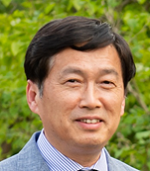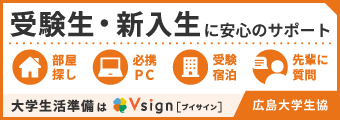Time and Date
18:30~21:20, 14 March 2022 (JST)
Registration
- Working Language: English (Simultaneous interpretation in Japanese)
- Participation Fee: Free
- Registration
- https://forms.gle/M7PBiWSQLWKUufga7
- Please fill in English.
A) The registration is open until 12:00, March 10 (JST).
B) This symposium will be held online through Zoom. You need an internet access, device with camera and microphone.
C) Using your full name for your personal meeting ID is required when you enter the meeting room. You may not receive a permission to enter the room if the ID is different from the name registered.
D) As a participant, you are not allowed to record the events or take the screenshot at your own.
E) We will inform you of the participation URL by the day before. Please contact us at the following address by noon, March 13 (JST) if you do not receive the email.
symposium.admissions@gmail.com
Aim of the Symposium
In the globalized world today, there are 5 million international students studying at universities abroad. The 21st century is said to be the century of a greater international student’s mobility, which will continue to increase in the future. It has been estimated that the number of international students worldwide will surge to 7.69 million in 2025, making Asia the largest international student’s market (Altbach & Balan, 2007; Umakoshi, 2004). Japan is no exception in this trend of international student’s mobility. In Japan, the goal to reach the number of 100,000 international students was attained in 2003. As Japan is currently facing the excess in the university supply owing to the demographic decline in the younger (aged <18 years) population, the Ministry of Education, Culture, Sports, Science and Technology (MEXT) announced that it would accept 300,000 international students in 2008, and the outline of the plan to reach this number was adopted in 2009. According to the outline, this plan is positioned as part of the global strategy development and aims to accept outstanding international students and contribute internationally by improving university entrance to employment support (MEXT, 2008). Moreover, MEXT launched the “Top Global University Project” (TGU) to increase the number of Japanese top universities in the world, and selected TGU universities have set their respective goals to accept international students (MEXT, 2014). Our Hiroshima university is one of these universities. Thus, due to these policies and projects, the number of international students in Japanese higher education institutions was 298,980 in 2019. A total of 114,950 (38.4%) international students were from China, 72,354 (24.2%) from Vietnam, 24,331 (8.1%) from Nepal, and 87,345 (29.3%) from other countries/regions (Japan Student Services Organization; JASSO, 2018). However, COVID-19 Pandemic in 2020 has made it difficult for international students to studying abroad. Therefore, in the half of symposium, presenters will present how university accepts (or cannot accept) international students and what challenges they are facing during current COVID-19 Pandemic in Europe, Oceania, and Asia.
Performing “quality assurance” on university students’ learning (include international students) outcomes is important. Matsushita (2019) defines learning outcomes as “a statement of what the learner is expected to know, understand, and be able to demonstrate at the end of a specified period of study, such as a program or course.” Performing a qualitative analysis of learning outcomes is important because the increase in the number of students entering universities has led to a diversification of academic abilities. According to the School Basic Survey (2021) published by Japan's Ministry of Education, Culture, Sports, Science and Technology (MEXT), 533,140 students entered university in Japan in 2021 (an increase of 57,000 from the previous year), raising the rate of university entrance to 57%. Trow (1976) associated “the era of universal access” with the diversification of academic skills and interests in students. Indeed, research by Okabe et al. (2001) shows that the academic performance of university depends upon their performance in university entrance examinations. Another reason to ensure the quality of learning outcomes is because universities receive subsidies from the government for advancing public goals such as education. University education enhances individual qualities and strengthens the economic power of a country or region (National Institute for Educational Policy Research, 2015), as a result, of course, it also raises an individual's annual income, and is therefore a private good as well (Tachibanaki, 2021). However, in relation to being a public good, it is important for universities to demonstrate to the public what knowledge and skills university students acquire. It is also important to ensure the quality of students' learning outcomes in the light of the ongoing COVID-19 Pandemic, that has introduced online education in most universities. For international students, current COVID-19 pandemic influence not only to international student’s mobility, it is also important to make their quality assurance in online education. Robinson and Ikeda (2002) define online education as “education and learning provided over a computer network.” With the adoption of online education in most universities, it needs to be explored whether students are acquiring appropriate levels of knowledge and skills. Thus, in the latter half of this symposium, presenter will present how each universities assures the quality of international students' learning outcomes through online education of COVID-19 Pandemic in Europe, Oceania, and Asia.
Program
18:00~ Online registration
MC: Dr. Futao Huang,
Professor in Research Institute for Higher Education, Hiroshima University, Japan
| 18:30ー18:35 | Opening remarks | Dr. Makoto Miyatani, Executive Vice Presidents (Education), Hiroshima University, Japan |
| 18:35ー19:05 | Presentation 1 |
The Value of Communication and Experiential Learning in Higher Education: Reflections Stimulated by the CORVID-19 Imposed Communication Crisis |
| 19:05ー19:35 | Presentation 2 |
International Students in Australia: (Im)Mobility during the COVID-19 Pandemic |
| 19:35-19:45 | -Break- | |
| 19:45-20:15 | Presentation 3 |
International Student’s Mobility during COVID-19 Pandemic in Portugal |
| 20:15-20:45 | Presentation 4 |
Analysis on Online Learning Investment and Its Influencing Factors of International Students in China during COVID-19 |
| 20:45-21:15 | General Discussion | Coordinator: Dr. Noboru Miyoshi, Deputy Director and Associate Professor (Specially Appointed) in Office of Admissions, Hiroshima University, Japan |
| 21:15ー21:20 | Closing remarks | Dr. Junich Nagata, Director and Associate Professor in Office of Admissions, Hiroshima University, Japan |
Details about Master of Ceremony (MC) &Speakers

- Dr. Ulrich Teichler

- Dr. Catherine Gomes

- Dr. Thais Franca

- Dr. Genshu Lu

- Dr. Futao Huang
Inquiry
Noboru Miyoshi, Ph.D (Education)
Deputy Director, Associate Professor (Specially Appointed)
Office of Admissions, Hiroshima University
E-Mail: symposium.admissions<AT>gmail.com
※Please change <AT> to a single-byte at sign and send.


 Home
Home




